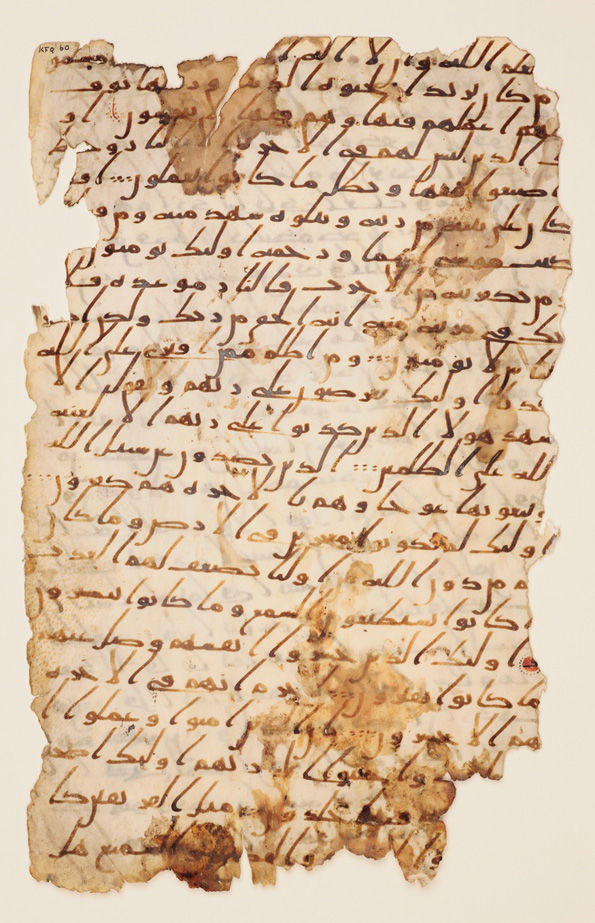Struggles of succession plagued the community of Muslims in the decades after the Prophet Muhammed's death in 632 A.D. The first four Muslim leaders, known as the Rashidun, or "Rightly Guided" caliphs, did not succeed by birth, but rather were chosen by council or because of a personal relationship to the Prophet. The period was marked by strident disagreements about legitimacy of individual caliphs and about the proper practice of Islam.
Uthman ibn Affan's reign (644–656) was undoubtedly one of the most formative in this tumultuous period. Born in the Hijaz (Arabia) into an Umayyad family in the Quraysh clan, Uthman was a companion of the Prophet. He was already in his mid-sixties when he was elected third caliph. Uthman's reign had enduring political, economic, and religious consequences. He revitalized the administrative structures of his provinces and reorganized caliphal territories, or junds, often based on Byzantine provincial divisions. Uthman also introduced economic reforms. One of the most notable was striking new coinage which included the addition of Arabic, such as Sasanian-type dirhams inscribed with the word bismallah, meaning "In the name of Allah."
Uthman's most lasting contribution, however, was the recension of the Qur'an, an effort to edit variant textual traditions in order to protect a standard interpretation of the divine word.1 He convened a committee to debate these variations and ordered canonical copies to be sent to Damascus, Mecca, Basra, and Kufa. He commanded the destruction of earlier editions of the Qur'an.
Folio from a Hijazi Qur'an (recto). Ink on parchment, 8th century. The Nasser D. Khalili Collection of Islamic Art, London (KFQ 60)
Like many figures of this early period, Uthman leaves behind a controversial legacy. Some sources emphasize his piety, generosity, and level-headedness; others relay stories of his ruthlessness and ineffectiveness as a ruler. The last years of Uthman's reign were marked by popular unrest, which continued after his death, culminating in the "First Fitna," or civil war.
[1] See Finbarr B. Flood's essay "The Qur'an" in the exhibition catalogue, Byzantium and Islam: Age of Transition.
